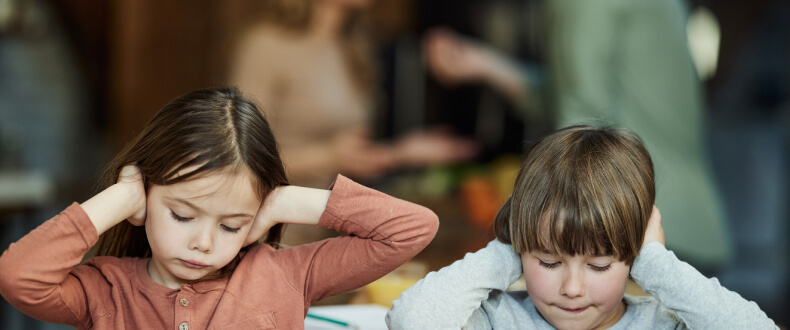Divorce is a challenging process, emotionally taxing not just for the couples involved but profoundly so for children. Recognizing and addressing the unique needs of children during this time can significantly ease their emotional burden. Through practical advice and compassionate guidance, parents can mitigate the impact of this transition on their family members. Here are suggestions on how to make divorce a less stressful experience for children.
Understand Your Child’s Perspective
Grasping your child’s perspective is crucial during a divorce. Children, depending on their age, will perceive and react to the separation differently. Young kids might not understand the situation fully, while teenagers may feel anger or blame themselves. It’s important to engage in open, honest conversations tailored to their level of understanding. Explain the changes they can expect without overwhelming them with details. Listening to their concerns, validating their feelings, and reassuring them of both parents’ love are key steps in helping them adjust. Every child’s reaction is unique, and you may need to be patient as they process their emotions and come to terms with the new family dynamics.
Maintain a United Parenting Front
Maintaining a united parenting front can lessen the emotional strain of divorce on children. Despite the changes in your relationship, it’s important to work together in your parenting roles. Demonstrate to your children that they can continue to count on both parents for love, support, and stability. Agree on common rules, schedules, and disciplinary approaches to ensure consistency across both households. Tackling parenting disagreements privately, away from the children, helps preserve their sense of security and prevents them from feeling caught in the middle. This approach not only supports a healthier adjustment for your children but also lays a foundation for effective co-parenting in the years to follow.
Encourage Open Communication
Encouraging open communication is key to helping children navigate the emotional complexities of divorce. Create a safe space where they feel comfortable sharing their thoughts, fears, and questions. Children need to know that their feelings are valid and that they have a voice in the family dynamic. Actively listen to what they say, and acknowledge their emotions without judgment. If children are hesitant to open up, consider engaging in activities together that might help them express themselves more freely. For some families, seeking the support of a family therapist can provide a neutral setting for everyone to communicate more effectively. Open communication can help children feel supported and understood during this transitional period.
Protect Children from Conflict
Protecting children from conflict during a divorce is essential for their emotional well-being. It’s important to shield them from adult disagreements and legal complications. Engaging in arguments or speaking negatively about the other parent in front of the children can increase their stress and lead to feelings of divided loyalty. Manage your emotions and resolve disputes away from your children’s ears. This approach not only keeps the children’s environment more peaceful but also models healthy conflict resolution skills. By maintaining a calm and respectful demeanor around your children, you help preserve their sense of security and foster a positive perception of both parents, despite the changes happening in their lives.
Create a Support Network
Creating a robust support network can help children adjusting to the realities of divorce. This network should include not just parents but also extended family members, close friends, and professionals like therapists or counselors, who can offer additional layers of emotional support. Encourage relationships that provide your children with a sense of stability and belonging. Activities and groups outside the home, such as sports teams, clubs, or art classes, can also be part of this network, offering children outlets for expression and social interaction. A strong support system helps children understand they are not alone.
Contact an Experienced Divorce Attorney
At Cohen Family Law, we understand the delicate balance of managing legal proceedings while prioritizing your child’s well-being. Our team is here to offer compassionate, experienced guidance. Reach out to us for support tailored to your family’s unique needs.

